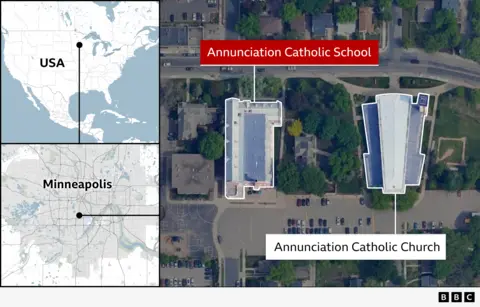In a bold announcement, Kenyan President William Ruto has revealed plans to construct a large church at the State House in Nairobi, a project that may cost around $9 million. Emphasizing that he will personally finance this venture, Ruto stated, “I am not going to ask anyone for an apology for building a church," and suggested that some may oppose the project due to "the devil" being agitated by his intentions.
The plans published by the Daily Nation depict an extensive architectural design, including stained glass windows and a seating capacity for 8,000 individuals. Critics are concerned not only about the expense amidst a rising cost of living crisis in Kenya, but also about the constitutionality of constructing such a religious edifice on government property in a country defined as secular. An MP has publicly expressed that Kenya is not a Christian nation but embraces diversity, highlighting the presence of significant Muslim and other religious populations.
While President Ruto identifies as Kenya's first evangelical Christian leader, often drawing on biblical references and fostering a strong religious persona, his actions have garnered mixed reactions from the public. Many Kenyans feel that this church-building initiative symbolizes a troubling merge between state and religion.
Ruto counters these criticisms by pointing out that a church already exists at the State House, albeit in a less formal capacity constructed from iron sheets. This move aims to replace it with a structure more befitting of Kenya's presidential residence, linking it to his personal vision of leadership and faith.
As the debate surrounding this project unfolds, it raises critical questions about the role of religion in governance, the respect for secularism, and the allocation of resources in a nation where many citizens are grappling with economic difficulties.
The plans published by the Daily Nation depict an extensive architectural design, including stained glass windows and a seating capacity for 8,000 individuals. Critics are concerned not only about the expense amidst a rising cost of living crisis in Kenya, but also about the constitutionality of constructing such a religious edifice on government property in a country defined as secular. An MP has publicly expressed that Kenya is not a Christian nation but embraces diversity, highlighting the presence of significant Muslim and other religious populations.
While President Ruto identifies as Kenya's first evangelical Christian leader, often drawing on biblical references and fostering a strong religious persona, his actions have garnered mixed reactions from the public. Many Kenyans feel that this church-building initiative symbolizes a troubling merge between state and religion.
Ruto counters these criticisms by pointing out that a church already exists at the State House, albeit in a less formal capacity constructed from iron sheets. This move aims to replace it with a structure more befitting of Kenya's presidential residence, linking it to his personal vision of leadership and faith.
As the debate surrounding this project unfolds, it raises critical questions about the role of religion in governance, the respect for secularism, and the allocation of resources in a nation where many citizens are grappling with economic difficulties.
















